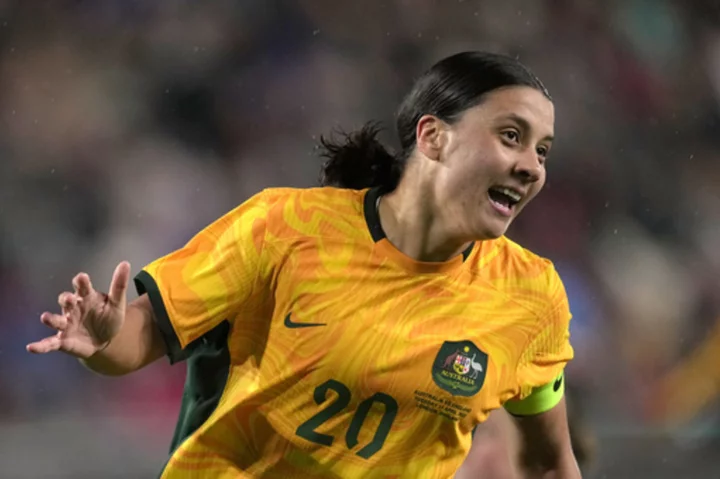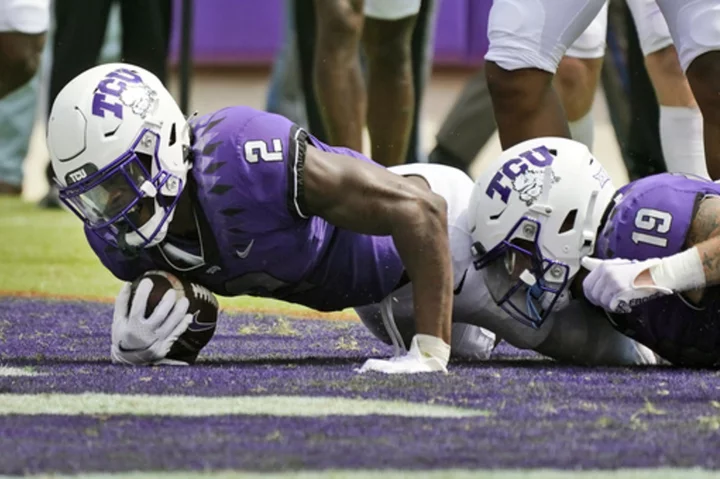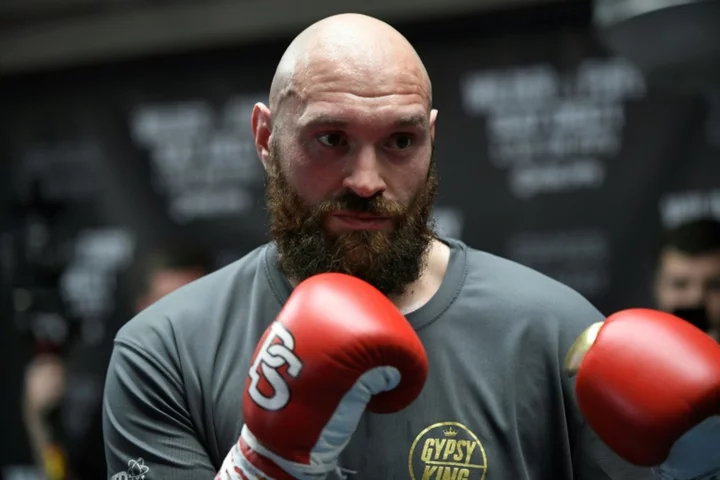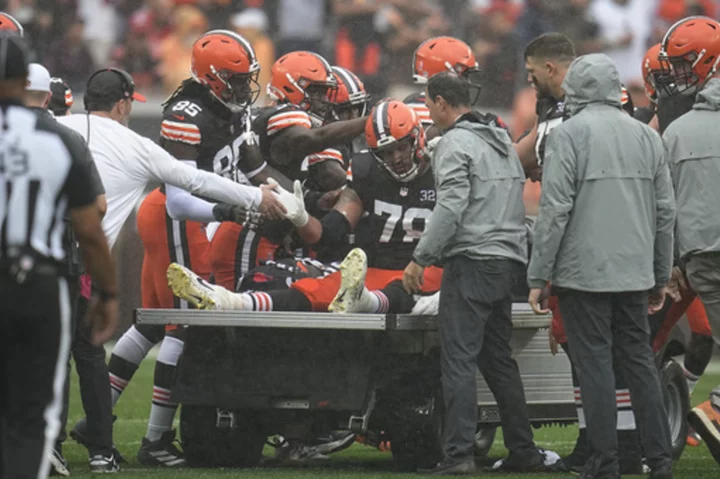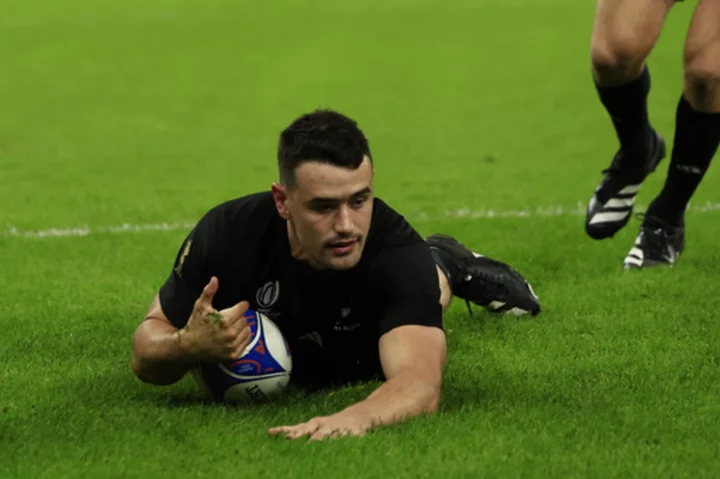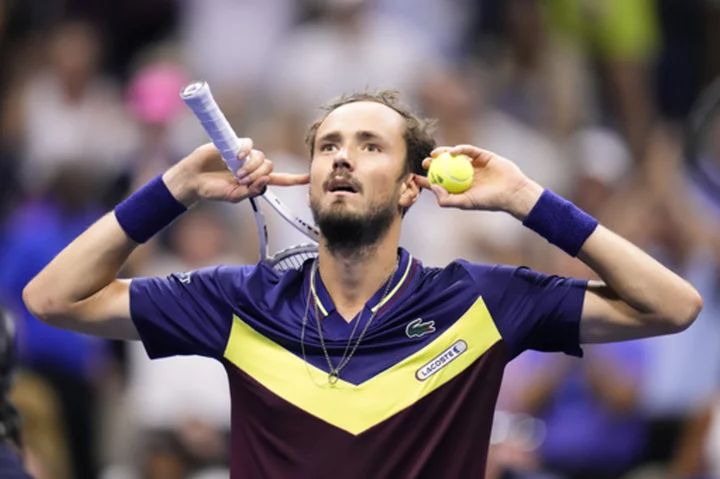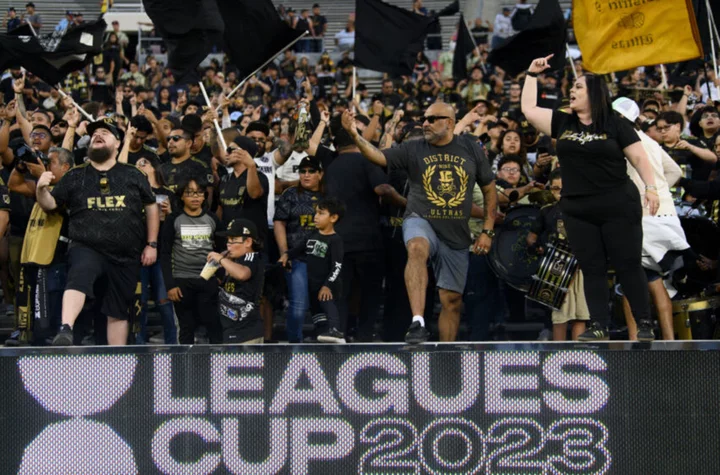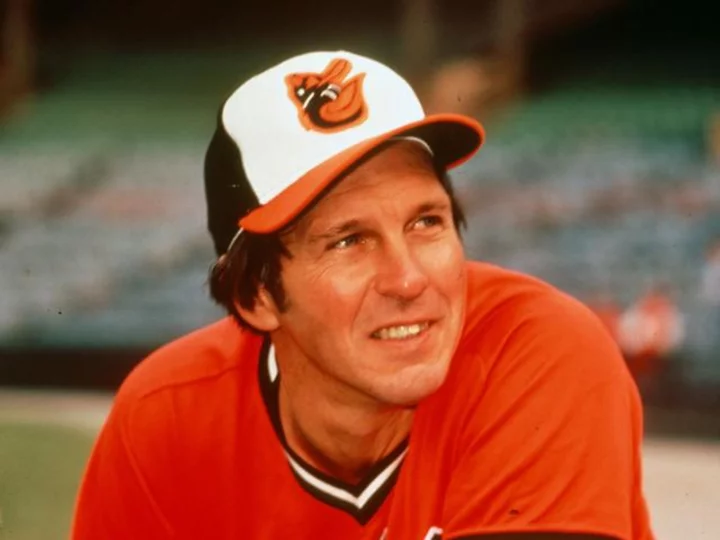Declan Rice shows what Arsenal have and what Chelsea don’t after creating £100m midfielder
A few years ago, Declan Rice said he would have passed. Now, however, the £105m man assumed responsibility, shot and, via a deflection off Jonny Evans, gave Arsenal a 96th-minute lead against Manchester United. As Gabriel Jesus scored an even later goal, it was not technically the winner. But Rice was the scorer of the de facto decider in the sort of match that can define seasons and establish reputations. Perhaps particularly for central midfielders, given that it is a fixture that evokes memories of Patrick Vieira against Roy Keane. Vieira scored the winning penalty in an FA Cup final shootout against United; Keane scored a disproportionate number of his United goals – five, almost 10 percent – against Arsenal. Rice’s first in Arsenal colours came at United’s expense. The most expensive Englishman ever can appear something of a throwback player: called a defensive midfielder, but often an all-rounder, in the way the Frenchman and the Irishman were. His post-match interview was conducted next to Keane who, like Graeme Souness, a similarly dominant and brilliant midfielder and another whose punditry could focus more on personalities than tactics, subscribes to the great man theory of history: as a footballing great himself, he tends to argue that matches are determined by the determination of individuals, by a willingness to seize the moment, by winning a personal battle. It suits him to argue games are won by warriors, not formations involving inverted full-backs or box midfielders. Football has grown more complex, the tactical intricacies of managers such as Mikel Arteta and Pep Guardiola reducing the significance of going mano a mano with the opposition’s alpha male. And yet, in the age of the £100m midfielder, perhaps Rice has a responsibility to be more than just another cog in the wheel, to be the match-winner at least sometimes. If it is simplistic to demand a tangible impact that always equates with his price tag for a player whose contribution stretches far beyond goals and assists, he is nevertheless charged with improving Arsenal. Turning one point into three and winning a game against rivals is a way of doing that. And if philosophies and systems seemed to have reduced the reliance on the individual, there is evidence in the midfields of Arteta and Guardiola that football can still come down to big players producing big deeds at big moments. Ilkay Gundogan spent the first half of his Manchester City career as a neat passer. In the second half, he was transformed into the man for the big occasion, the scorer supreme who could use his footballing intelligence to find space and his technique to finish. It was, in part, why he became captain; by the time of his FA Cup final brace, he felt more Roy of the Rovers than Sergio Busquets. As the defensive midfielder, Rodri’s primary responsibilities were to engineer perpetual possession and to cut off counter-attacks. Yet as the Spaniard grew in stature, he has tended to deliver crucial contributions: most obviously the Champions League final winner and most recently the superb late decider at Sheffield United but a pre-Rice Arsenal can probably still remember and regret his injury-time winner at the Emirates Stadium on New Year’s Day in 2022: if the sense is that managers like Guardiola and Arteta want their midfielders to be elegantly robotic, executing a strategy with practised excellence, the importance of individual interventions is still apparent. Rice need only gaze across the Arsenal midfield to see. Martin Odegaard joined with certain similarities to Gundogan: obviously an assured passer, he has turned himself into an accomplished scorer as well as a regular skipper. The Norwegian’s two goals this season, a nerveless penalty at Crystal Palace and a swift equaliser against United, were signs of his substance, of a capacity to deliver when it matters. That Rice did likewise feels auspicious. He has cost the sort of sum that used to be reserved for attackers. Chelsea created the £100m midfielder and now have two of them, a £222m double act. That can seem the product of a shift in thinking, recognising the significance of dictating a game. But there is still the need to decide it. Enzo Fernandez has shown his incisive passing as he has become increasingly creative: that he only has two assists in their colours is in part a reflection of others’ poor finishing. But the Argentinian has a lone goal himself, and that was against AFC Wimbledon of League Two, while he missed a penalty at West Ham. Moises Caicedo’s Chelsea career has only spanned 205 minutes on the pitch and, while Fernandez has been used as a No 10 of late, the Ecuadorian’s deeper role means he is likely to score fewer goals than the World Cup winner or Rice. Nevertheless, at such a colossal cost, each was bought to make a difference. And when, deep into added time, it seemed Arsenal would drop two points, Rice did. Read More Arrest after Roy Keane allegedly headbutted at Emirates Stadium Arsenal forward Gabriel Jesus hopes he has seen the last of knee niggles Declan Rice rises to the moment as Arsenal avoid disastrous slip-up
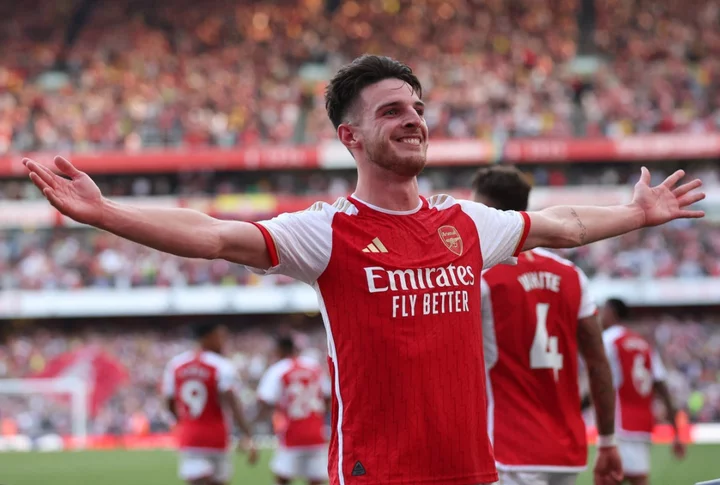
A few years ago, Declan Rice said he would have passed. Now, however, the £105m man assumed responsibility, shot and, via a deflection off Jonny Evans, gave Arsenal a 96th-minute lead against Manchester United. As Gabriel Jesus scored an even later goal, it was not technically the winner. But Rice was the scorer of the de facto decider in the sort of match that can define seasons and establish reputations.
Perhaps particularly for central midfielders, given that it is a fixture that evokes memories of Patrick Vieira against Roy Keane. Vieira scored the winning penalty in an FA Cup final shootout against United; Keane scored a disproportionate number of his United goals – five, almost 10 percent – against Arsenal. Rice’s first in Arsenal colours came at United’s expense. The most expensive Englishman ever can appear something of a throwback player: called a defensive midfielder, but often an all-rounder, in the way the Frenchman and the Irishman were.
His post-match interview was conducted next to Keane who, like Graeme Souness, a similarly dominant and brilliant midfielder and another whose punditry could focus more on personalities than tactics, subscribes to the great man theory of history: as a footballing great himself, he tends to argue that matches are determined by the determination of individuals, by a willingness to seize the moment, by winning a personal battle. It suits him to argue games are won by warriors, not formations involving inverted full-backs or box midfielders.
Football has grown more complex, the tactical intricacies of managers such as Mikel Arteta and Pep Guardiola reducing the significance of going mano a mano with the opposition’s alpha male. And yet, in the age of the £100m midfielder, perhaps Rice has a responsibility to be more than just another cog in the wheel, to be the match-winner at least sometimes. If it is simplistic to demand a tangible impact that always equates with his price tag for a player whose contribution stretches far beyond goals and assists, he is nevertheless charged with improving Arsenal. Turning one point into three and winning a game against rivals is a way of doing that.
And if philosophies and systems seemed to have reduced the reliance on the individual, there is evidence in the midfields of Arteta and Guardiola that football can still come down to big players producing big deeds at big moments.
Ilkay Gundogan spent the first half of his Manchester City career as a neat passer. In the second half, he was transformed into the man for the big occasion, the scorer supreme who could use his footballing intelligence to find space and his technique to finish. It was, in part, why he became captain; by the time of his FA Cup final brace, he felt more Roy of the Rovers than Sergio Busquets.
As the defensive midfielder, Rodri’s primary responsibilities were to engineer perpetual possession and to cut off counter-attacks. Yet as the Spaniard grew in stature, he has tended to deliver crucial contributions: most obviously the Champions League final winner and most recently the superb late decider at Sheffield United but a pre-Rice Arsenal can probably still remember and regret his injury-time winner at the Emirates Stadium on New Year’s Day in 2022: if the sense is that managers like Guardiola and Arteta want their midfielders to be elegantly robotic, executing a strategy with practised excellence, the importance of individual interventions is still apparent.
Rice need only gaze across the Arsenal midfield to see. Martin Odegaard joined with certain similarities to Gundogan: obviously an assured passer, he has turned himself into an accomplished scorer as well as a regular skipper. The Norwegian’s two goals this season, a nerveless penalty at Crystal Palace and a swift equaliser against United, were signs of his substance, of a capacity to deliver when it matters.
That Rice did likewise feels auspicious. He has cost the sort of sum that used to be reserved for attackers. Chelsea created the £100m midfielder and now have two of them, a £222m double act. That can seem the product of a shift in thinking, recognising the significance of dictating a game. But there is still the need to decide it. Enzo Fernandez has shown his incisive passing as he has become increasingly creative: that he only has two assists in their colours is in part a reflection of others’ poor finishing. But the Argentinian has a lone goal himself, and that was against AFC Wimbledon of League Two, while he missed a penalty at West Ham.
Moises Caicedo’s Chelsea career has only spanned 205 minutes on the pitch and, while Fernandez has been used as a No 10 of late, the Ecuadorian’s deeper role means he is likely to score fewer goals than the World Cup winner or Rice. Nevertheless, at such a colossal cost, each was bought to make a difference. And when, deep into added time, it seemed Arsenal would drop two points, Rice did.
Read More
Arrest after Roy Keane allegedly headbutted at Emirates Stadium
Arsenal forward Gabriel Jesus hopes he has seen the last of knee niggles
Declan Rice rises to the moment as Arsenal avoid disastrous slip-up


